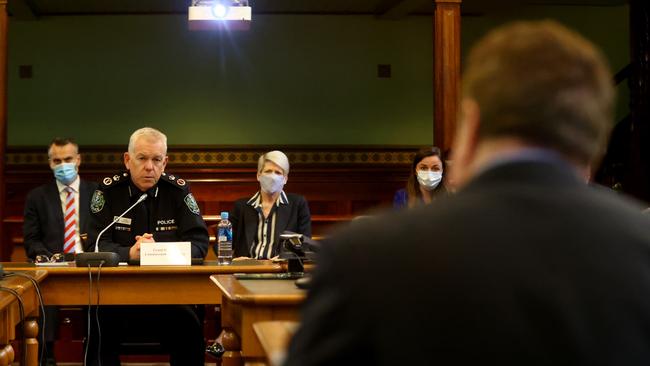Police have been dictating your right to never know, but Tribunal blasts secrecy habits
An investigation has found that police are misusing secrecy laws to hide investigations which may reflect poorly on SAPOL.
SA News
Don't miss out on the headlines from SA News. Followed categories will be added to My News.
SAPOL has been blasted for keeping investigations into officer misconduct secret, to hide from criticism of the service.
SAPOL has appealed against the findings to the Supreme Court, after the South Australian Civil and Administrative Tribunal (SACAT) made a scathing judgment that SAPOL secrecy defied the wishes of state parliament.
The Supreme Court has now slapped an order to “stay the operation” of the SACAT decision as authorities battle to keep the investigations secret.
Internal investigations have long been kept secret by police, but currently come under the Police Complaints and Disciplinary Act 2016 and part of the ICAC umbrella.
In the SACAT judgment Knight v South Australian Police, member Alexander Reilly found SAPOL was using permanent bans on releasing information to hide from public criticism.
“In line with the principles of open government … it is unlikely that parliament intended access to information related to complaints to be permanently barred from members of the public interested in reviewing the performance and integrity of SAPOL,’’ he stated in a written judgment.
Mr Reilly warned of the dangers of SAPOL falsely interpreting the Act to mean “confidentiality for all time” and concluded; “A narrower interpretation is warranted to avoid the provision having a chilling effect (legally meaning the suppression of free speech) on the accessibility of information related to police complaints”.
“The correct and preferable decision is that information related to a complaint that is completed is not subject to section 45(1) of the Police Complaints and Disciplinary Act.”
He was commenting on the misuse by police of the Act to thwart a Freedom of Information application to SAPOL by a member of the public, Julie Knight, who complained of police mishandling her arrest in 2019.
In January 2020 Chief Inspector Paul Isherwood of the Internal Investigation Section had found the “conduct of the police was appropriate in the circumstances”.
Ms Knight had applied for the documents and CCTV footage of the incident and appealed to SACAT against the SAPOL decision.
SAPOL told her the police disciplinary Act stated it: “must not, directly or indirectly, disclose information in relation to or connected with a matter that forms or is the subject of a complaint, report, assessment or investigation under this Act”.
In 2020-21 the Act was used to deal with 2413 complaints against police.
But police have found an ally in State Ombudsman Wayne Lines. In a ruling this week he disagreed with SACAT.

The case will have implications for ICAC because, SACAT found, section 45 of the Police Act is the same as section 54 of the Independent Commission Against Corruption Act 2012.
In his written judgment, Mr Reilly found the parliament could have meant the ban on release was for “all time” or “while a complaint is active, or up until the time that a report or assessment or investigation is completed”.
“After these processes are finalised (the investigation), there is no longer a matter that forms or is the subject of a complaint… or investigation”,’’ he stated.




